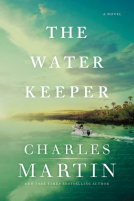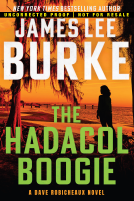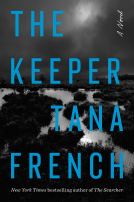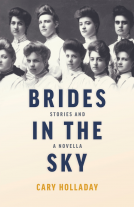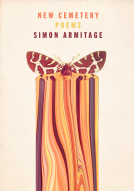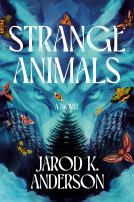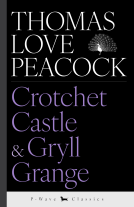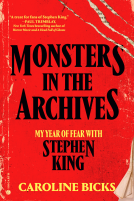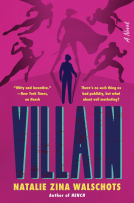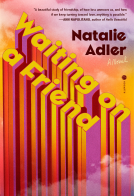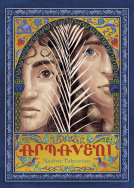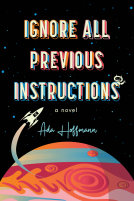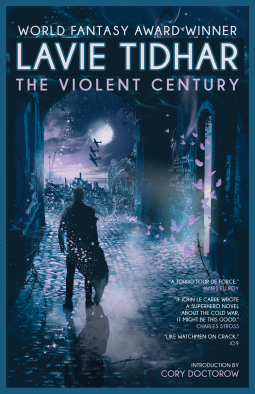
The Violent Century
by Lavie Tidhar; Lavie Tidhar; Lavie Tidhar
This title was previously available on NetGalley and is now archived.
Send NetGalley books directly to your Kindle or Kindle app
1
To read on a Kindle or Kindle app, please add kindle@netgalley.com as an approved email address to receive files in your Amazon account. Click here for step-by-step instructions.
2
Also find your Kindle email address within your Amazon account, and enter it here.
Pub Date Aug 02 2019 | Archive Date Nov 04 2019
Talking about this book? Use #TheViolentCentury #NetGalley. More hashtag tips!
Description
“A torrid tour de force.” —James Ellroy
“Like Watchmen on crack.”—io9
“If John le Carre wrote a superhero novel about the Cold War, it might be this good.” —Charles Stross
A bold experiment has mutated a small fraction of humanity. Nations race to harness the gifted, putting them to increasingly dark ends. At the dawn of global war, flashy American superheroes square off against sinister Germans and dissolute Russians. Increasingly depraved scientists conduct despicable research in the name of victory
British agents Fogg and Oblivion, recalled to the Retirement Bureau, have kept a treacherous secret for over forty years. But all heroes must choose when to join the fray, and to whom their allegiance is owed—even for just one perfect summer’s day.
From the World Fantasy and Campbell award-winning author of Central Station comes a sweeping novel of history, adventure, and what it means to be a hero.
A Note From the Publisher
Advance Praise
Praise for The Violent Century
“The Violent Century is a very sophisticated blend of fantasy and real life. Of flawed superheroes engaging with key events in the twentieth and twenty-first centuries. Lavie Tidhar is a veteran of seamlessly weaving an intriguing blend of fiction into world changing historical events.”
—Strange Alliances
“The Violent Century is a wonderfully constructed, crafted work that bears a great emotional weight even as it raises more intellectual questions. It’s the kind of work that lingers in the mind long after the reading.”
—Fantasy Literature
“A brilliant novel of ideas.”
—B&N book blog
“A brilliantly etched phantasmagoric reconfiguring of that most sizzling of eras—the twilight 20th.”
—James Ellroy, author of L.A. Confidential and Blood’s a Rover
“The Violent Century is a brilliant story of superheroes and spies and secret histories. It stands with Alan Moore’s Watchmen as an examination of the myths that we made in the 20th Century and the ways they still haunt us now.”
—Christopher Farnsworth, author of Blood Oath
“The Violent Century is admirably plotted and well paced, with an atmosphere of menace throughout, I’m puzzled as to why this wasn’t on any award shortlist for its year.”
—Jack Deighton, author of A Son of the Rock
“Like Watchmen on crack.”
—io9
“If Nietzsche had written an X-Men storyline whilst high on mescaline, it might have read something like The Violent Century.”
—Adam Roberts, author of Jack Glass
"An alternative history tour-de-force. Epic, intense and authentic. Lavie Tidhar reboots the 20th century with spies and superheroes battling for mastery—and the results are electric.”
—Tom Harper, author of The Lost Temple
“A stunning masterpiece”
—The Independent
“Tidhar synthesises the geeky and the political in a vision of world events that breaks new superhero ground.”
—The Guardian
“A morally complex, artistically ambitious story based on characters whose origins are not that far removed from the simplicity of Superman, Spiderman, and their ilk. Tidhar has succeeded brilliantly in this task.”
—LA Review of Books
“A sophisticated, moving and gripping take on 20th century conflicts and our capacity for love and hate, honour and betrayal.”
—The Daily Mail
“It’s the X-Men as written by John le Carré . . . A love story and meditation on heroism, this is an elegiac espionage adventure that demands a second reading.”
—Metro
“Could keep anyone, regardless of the types of stories they regularly enjoy, interested and engaged.”
—The Huffington Post
“A new masterpiece . . . a tremendous, unforgettable read.”
—Library Journal, starred review
“If you love Philip K. Dick, Lavie Tidhar should be your new favorite writer . . . an unforgettable read.”
—The Jewish Standard
“The sort of thing Quentin Tarantino did as bloody wish-fulfillment in Inglourious Basterds, multiplied by several orders of magnitude.”
—Locus
“An original, engrossing fusion of noirish super-heroes and gritty espionage thriller . . . a fantastic novel”
—Civilian Reader
“Tidhar has the chance to become this generation’s Ursula LeGuin, an author who is equally capable of engaging readers on a surfeit of levels, as socially conscious as he is literary, and as reckless as he is in control. The Violent Century is unquestionably one of the finest novels of 2013. Lavie Tidhar is no longer a rising star in the genre, but one burning bright.”
—Staffer’s Book Review
Praise for Central Station
2017 John W. Campbell Award winner
2018 Neukom Institute Literary Arts Award winner
An NPR Best Book of 2016
An Amazon Featured Best SF & Fantasy Book
A UK Guardian Best SF & Fantasy Book
[STARRED REVIEW] “World Fantasy Award–winner Tidhar (A Man Lies Dreaming) magnificently blends literary and speculative elements in this streetwise mosaic novel set under the towering titular spaceport . . . Readers of all persuasions will be entranced.”—Publishers Weekly
“It is just this side of a masterpiece — short, restrained, lush — and the truest joy of it is in the way Tidhar scatters brilliant ideas like pennies on the sidewalk.”
—NPR Books
“Beautiful, original, a shimmering tapestry of connections and images—I can’t think of another SF novel quite like it.” —Alastair Reynolds, author of the Revelation Space series
“If you want to know what SF is going to look like in the next decade, this is it.”—Gardner Dozois, editor of the best-selling Year’s Best Science Fiction series
“A dazzling tale of complicated politics and even more complicated souls. Beautiful.”—Ken Liu, author of The Grace of Kings
“Tidhar always stuns me.”—Kij Johnson, author of At the Mouth of the River of Bees
“A mosaic of mind-blowing ideas and a dazzling look at a richly-imagined, textured future.”—Aliette de Bodard, author of The House of Shattered Wings
“It’s all of science fiction distilled into a single book.”
—Warren Ellis, author of Gun Machine
Marketing Plan
-Promotion at major trade and genre conventions, including the World Science Fiction and World Fantasy conventions; ALA; the Nebula Awards; and Readercon
Available Editions
| EDITION | Other Format |
| ISBN | 9781616963163 |
| PRICE | CA$25.50 (CAD) |
| PAGES | 332 |
Links
Average rating from 28 members
Featured Reviews
Lavie Tidhar’s novels dwell in some clouded never-realm, mixing fact, fiction, reality, and fantasy in a potent gumbo. His wondrous creations, however, often do not follow standard protocol of plot lines. “The Violent Century” is a hybrid mix of X-Men with Inglorious Bastards. It revisits the Second World War with superhumans fighting secretly for both sides. In Britain, the mutants are gathered into a school, a farm, a world where there talents can be cultivated before they are sent out and charged with saving the world. Saving the world means doing battle with the Nazi’s own ubermen whether in Soviet Russia, in Transylvania alongside partisans, or in secret missions in Paris. Along with the battle of superheroes, Tidhar deals with Dr. Mengele, Aushwitz, and the untold battles of thousands of unarmed civilians against the Great Evil.
Much of the story flips back and forth between the farm in Britain pre-war as the great clouds of battle are gathering and the missions throughout the war. But, other time jumping episodes take us through the remainder of the twentieth century from the Cold War and the Berlin Wall to the secret war in Laos to the arming of a young Bin Ladin in Afghanistan (amidst a warning to execute him before...) to the planes launching into the towers as a new century dawned and the age-old battle against evil continued.
The story is told through the adventures of Fogg and Oblivion, two superpowered entities who meet on the farm as children and again throughout the century. They are complex, flawed characters who, despite their awesome powers, are enveloped in loneliness and sadness and never seem to be able to bask in the glory of their accomplishments. The chapters are short. The chapters skip around in time. Moral, ethical questions are posed. A rather unique achievement.
Many thanks to the publisher for providing a copy for review.
The Violent Century by Lavie Tidhar. Tachyon edition ARC reviewed for Netgalley.
Let's say there really were super heroes. That some event created people with powers far beyond any of the rest of us, all over the world. And then the world went to war. What would that be like? What would change? Would the men and women with these powers be human, like the rest of us?
This is the central idea of The Violent Century, the exploration of that great "what if". It asks the questions, explicitly, what makes a hero? What makes a man? I am not sure that it answers them, but it goes deep. It digs and gouges, searching for something. For meaning.
This book is more than another take on the "man behind the mask" trope. It is a paean and an elegy, a love letter to heroes, and a lament at the painful need for them, especially in this last century-the violent century.
Lavie Tidhar is Jewish. This is important. This is important because many of our greatest heroes were born of the Second World War, and were born of Jewish artists, some of whom themselves fought in this war. Stan Lee. Jack Kirby. Jerry Siegel and Joel Shuster. Jewish men in America who created heroes to fight enemies that seemed unstoppable. Some of these men actually appear in the novel, and speak of the need for heroes. This is not subtext. It is text. Europe needed Heroes. It got men and women, who might have been heroes of a sort. And millions died.
The heroes in this story are also men and women. They drink, the weep, they cry and fail and die. They have extraordinary power and extraordinary responsibility and still mess it up sometimes. But they try. And they go on, and sometimes the get to find a thing that might make a man. They find some love, perhaps. This might be an answer.
Then there is the structure. The Violent Century is not written like a Novel. It is a comic book with no pictures. The sentences are short. Broken. Sections are into scenes rather than chapters. Descriptions are vivid and dynamic. There are no quotation marks. The dialog runs into the narration because there are no speech balloons to mark it. Again, this is not subtext. It is text, explicit in the story. Eventually.
It is effective.
This book is haunting, and challenging, and exciting. I read it and I will read it again. I am grateful for the chance to review it for Netgalley, but I will buy the book and I will try to see if answers are to be found within, because I think I would like to know what makes a hero and what makes a man.
 Reviewer 492564
Reviewer 492564
This is a brilliant reimagining of superheroes and super-villains, set in the many wars of the twentieth century. When an experiment causes a small number of the world's population to become changed, governments rush to snap up those who can serve best as weapons. The novel follows two heroes, Oblivion and Fogg, from their training as young adults through their service in WWII, Vietnam, and other conflicts. Along the way they work with other changed people, men and women with widely varying powers and abilities and motivations, negotiating lives no one else will fully understand. This is an intelligent novel, a superhero story with deep philosophical roots, with a great sense of history and the consequences, historically speaking, of action and inaction, and a fabulous read with fascinating characters and ideas.
 Annie S, Librarian
Annie S, Librarian
In 1932, a scientist flipped a switch on a device without quite knowing what it would do. The device created a bunch of super-powered humans around the world, super-powered humans who are a lot like the X-Men. In Lavie Tidhar’s The Violent Century, we see an alternate history of the twentieth century, the way it would have played out if there had been superheroes running around the battlefields of World War II, Vietnam, and the Cold War. There’s even a cheeky cameo by one Stanley Martin Lieber.
Fogg has been “out in the cold” for years when his old partner, Oblivion. They worked for the Bureau of Superannuated Affairs during the War and now, the Old Man, needs to talk to Fogg about some unfinished matters. Being spies, Fogg and Oblivion don’t give away much. It’s a little hard to figure out what’s going on from their conversation. Thankfully, this book is composed mostly in flashbacks that take us from Fogg’s childhood to his recruitment, to World War II, and beyond. By the end of the book, we get a completely different history of an entire century. I loved this gritty retelling of history so much!
Throughout the book, as Fogg and Oblivion pop up in history, Fogg constantly wonders about what makes a hero. From 1936, each of the major powers field what they call Übermenschen or superheroes or the changed. The Germans have Schneesturm (Snow Storm) and Machertraum (Dream Maker) and Wulfmann (Wolfman). The Russians have the Red Sickle and Rusalka and Koshchei the Deathless. The Americans have Tigerman, Whirlwind, and the Green Gunman. There’s even a brilliant appearance of a super-powered Jewish Pole during the Warsaw Ghetto Uprising. The British have their share of superheroes, but they play a different game. Where other countries send their super-powered into the field, the British watch, take notes, and wait. Fogg is constantly told not to interfere, which goes against his instincts to save lives. His orders to stay out of sight really do a number on his psyche. It’s little wonder that Oblivion finds Fogg in a bar.
Through The Violent Century mostly looks back at Fogg’s past and the violent twentieth century, Tidhar brings everything to a stunning and satisfying conclusion. This book had me hooked from the beginning. It’s full of cameos and hints at our history that I loved puzzling out, on top of a fascinating story with terrific characters. This book is a wonderful adventure.
 Educator 317339
Educator 317339
This book stands out for its style as well as its content. A superhero story set in history, I enjoyed it even more than I expected because of its terse language and scene-type layout, which makes it seem very real and immediate.
Michael Chabon’s Pulitzer-winning novel The Amazing Adventures of Kavalier & Clay tells a fictionalized account of the partnership between Jerry Siegel and Joe Shuster, the duo behind the first popular superhero, Superman. (Or maybe it’s an adjacent fiction? Superman’s creators exist in the novel, but the titular writing team are from the same milieu.) The novel shares themes with the subject matter: the children of Jewish immigrants to America invent a hero who fights for truth, justice, and the American way, all against a backdrop of the rising tide of fascism. Their hero, the Escapist, trades in Superman’s bulletproof invincibility for a slippery escapism; the leads, like Siegel and Shuster, are similarly exploited by their publishers. It’s a reboot, in a way, retelling the origin story of the original origin story.
Lavie Tidhar’s novel The Violent Century, originally published in 2015 and for the first time widely available in print in the U.S., reboots the origin stories of superheroes in a similar manner, though closer to secret or alternate history; h takes heroes we conjure or impress into service for the good of the nation off the page and layers them over our rough history.
The Violent Century‘s twist on the story of the Übermenschen is told lappingly, moving forward and backward through time. It opens with a man called Oblivion delivering a message to someone named Fogg: The Old Man wants to speak to you about what happened in 1946. The narrative then skips back to the mid-1930s, when the Old Man first plucked Fogg out of university due to his uncanny ability to control mist in the air, and installed him at The Farm—a sort of Bletchley Park for the changed, as those gifted with superhuman powers are also called, complete with a young Alan Turing.
There, Fogg meets others of the English changed: Tank, Mrs. Tinkle, Mr. Blur, and most importantly, Oblivion, who ends up being his constant companion through the second world war. The novel operates both as a spy novel and a novel of war as Fogg recounts his actions to the Old Man (and the ever watchful Oblivion) pushing through WWII, Vietnam, and 9/11, circling ever closer to those post-war events in Berlin that demand an accounting.
Though this is an alternate history—the changed inevitably participate in conflicts all over the globe—the introduction of the superhuman doesn’t materially change world history. The Old Man likens this to a nullification effect: the changed cancel each other out, existing, as they do, in a distributed manner within every country. Oblivion and Fogg go to Minsk and lose a member to the Nazi Wolfman whose ability renders the powers of others useless. They go to Leningrad, under German siege, and meet their Soviet counterparts in the Red Sickle and Rusalka. In 1964, Israel puts Dr. Volmacht, the Nazi scientist responsible for the changed, on trial, and affair modeled on Adolf Eichmann’s—famously recounted by Hannah Arendt in Eichmann in Jerusalem, in which she coined the term “the banality of evil.” Stanley Martin Lieber—who in this timeline wrote under the name Stan Lee—speaks at the trial in his capacity as a historian. Tidhar folds up history, translating fiction into reality and back, presenting it to the reader like a closely guarded secret.
There’s something sly about the various powers attributed to the Übermenschen, the way their national identities are often expressed in almost laughable caricature. Fogg is from London (or thereabouts); he controls fog (what an appropriate name, then). The American changed—the Tigerman! The Electric Twins! The Green Gunman! (who, Fogg thinks sourly, isn’t even green) —they wear loud costumes and pose, enacting a performative propaganda. The Nazi changed are at turns terrifying or bathetic; the Soviets tragic and melancholic. That one of the British changed is called Oblivion—who can simply vanish things from tanks to people—is a pretty serious statement on the English national identity, especially in the age of Brexit. From one vantage, the Übermenschen seem comic, ridiculous: they are people wearing their underpants on the outside of their clothes. They feel like a national identity turned personal—or the maybe the other way around—both larger than life and inconsequentially small. They turn heroism inside out.
Though the events are often naturalistic and historical—everything from Auschwitz to the Soviet invasion of Afghanistan is accounted for—the introduction of the changed into the proceedings changes history in subtle ways. The changed ironically don’t change on the outside: trapped at the age they were when Dr. Vomacht activated his device in 1932 (the same year Siegel and Shuster created Superman). But as avatars of national identity, their roles in the conflicts that punctuate our history twist and mutate: Oblivion ends up in Vietnam while the US was illegally bombing Laos and Cambodia during the war, working with the American Tigerman to find the former Nazi Wolfman who allied with the Russians and the Viet Cong, and whom they now want dead. Allegiances and alliances become murky. It was never as simple as donning a cape for one’s country, but eventually even the pretense vanishes. By the time Osama bin Laden arrives on the scene, the changed seem both irrelevant and exhausted.
The Violent Century ruminates on the concept of the superhero—a term which never appears in the novel—by pondering the question of heroism itself. It seems fitting, in an odd way, that the reprint should coincide with the 50th anniversary of the moon landing: one of the heroes of the American space program, Wernher von Braun (who cameos here), was a good looking man with a matinee idol’s jaw. During the second world war, von Braun was a member of the Nazi party and the SS, and a German war hero for designing the V-2 rocket. (Thomas Pynchon’s postmodernist classic Gravity’s Rainbow opens with the V-2 screaming across the sky.) He was repatriated to the United States along with dozens of Nazi scientists—and, in The Violent Century, with German Übermenschen—through Operation Paperclip, his history whitewashed for his scientific abilities. The concept of the hero implies a service to the state; when the state changes, heroism inevitably changes too.
Though The Violent Century is never particularly emotionally engaging—Tidhar’s typically choppy style and rapid scene shifts preclude an emotional immersion—it is a brilliant novel of ideas.
 Librarian 431790
Librarian 431790
I'm speechless as this is one the best alternate history book i've ever read.
The style of writing, the character development, the historical background create a powerful, enthralling and amazing story that keeps you hooked to the page.
I'm happy I requested this ARC because I discovered Lavie Tidhar, such an excellent and powerful writer.
I'd be more than happy to rate this book 10/5 as it's amazing.
More than highly recommended!
Many thanks to the publisher and Netgalley for this ARC, all opinions are mine
Superheroes are pretty much everywhere you turn these days. Whether it is the bright colours of the Marvel Cinematic Universe, the random powers of the X-Men films, the more serious tones of the DC heroes or the family dynamics of The Incredibles. And where there are superheroes there are take downs of the mythology like Alan Moore’s Watchmen (currently being remade for TV) or hyperviolent superhero satire of the The Boys. So it is probably now, more than ever, a good time to ask what makes a hero? This is a central question in Lavie Tidhar’s recently rereleased 2013 alternate-history-with-superheroes novel The Violent Century.
Henry Fogg was one of the handful of people globally affected by an experiment by Vomacht, a German (later Nazi) scientist in 1932. Those people underwent a range of mutations which gave them both super powers and extended lives. Henry, as his name suggested, gained the power to control fog and mist and after being picked up by the British secret service goes by the name Fog (because of course all of the heroes have names associated with their powers). Fog, along with his partner Oblivion (who can make anything simply disappear), is trained and then sent into the field during World War II to observe other Übermensch (as they are collectively known). The story of his time during the War is framed by a present day story in which he is brought in by Oblivion to meet with his handler, known as The Old Man.
This is an alternate history in which most of history as we know it remains the same. Tidhar’s (and the Old Man’s) thesis is that if both sides have superpowered help then any advantage would be negated. And there are superpowered individuals right across the world - during the Second World War Fog encounters other Übermensch from America, Russia and Germany. So that over the intervening years all of the events that we know – the moon landing, Vietnam, the Russian invasion of Afghanistan, September 11 – end up happening pretty much as readers might remember them, just with a slight twist. Anything that happens differently becomes an echo of the real event. For example, one of the centrepieces of the narrative is the trial of Vomacht, the scientist responsible for the spread of powers, which is based on the trial of Adolf Eichmann.
As with books like Michael Chabon’s The Amazing Adventures of Kavalier and Clay, Tidhar is particularly interested in the Jewish experience when it comes to superhero mythology. The World War II sections of the book do not shy away from events like the Warsaw Ghetto uprising or the concentration camp experiments of Dr Mengele. And during the trial of Vomacht, Tidhar has the State call two expert witnesses – historian Stanley Lieber (in our world Marvel founder Stan Lee) and Joseph Shuster (in our world one of the creators of Superman) to talk about the nature of heroes. And in the end, Tidhar comes back much more broadly to the question, constantly asked through the text of what it means to be a hero.
Which all makes this book sound fairly serious. And given that it catalogues all of the world conflicts from the mid twentieth-century on with a particular focus on World War II, it can be. But it also has heart, a sly sense of humour, great set action pieces and a range of fascinating supporting players. Tidhar’s particular brand of science fiction and alternate history has come to more prominence recently with awards for Central Station and Unholy Land but he is an author who has been garnering praise throughout his career and The Violent Century demonstrates why it is worth revisiting his back catalogue.
 Bill C, Reviewer
Bill C, Reviewer
Thanks to his two most recent novels, Central Station and Unholy Land, Lavie Tidhar has quickly become one of my favorite contemporary novelists, and so when I was given the opportunity to read a re-release of his earlier book, The Violent Century, I leapt right on it. Clearly, the last two books were not evidence of some sudden leap upward in achievement, as The Violent Century stands side by side in craft, structure, and thoughtfulness.
The novel posits an alternate history where in the early 1930s, a “probability wave” (promulgated accidentally by a German scientist) courses through the world and changing everyone’s DNA. For most, the effect was either imperceptible or minor. But for a select few, the wave transformed them into Ubermensch (think your garden-variety super-powered folks). Given the timing of “The Change,” and the book’s title, the reader can be forgiven for assuming that one subject Tidhar is going to explore is the impact of superheroes on World War II (and then the century’s other wars, proxy wars, and police actions). And yes, superheroes from a host of countries (The US, Britain, Russia, Germany, Transylvania, etc.) take part in the war. But what surprises (and probably should not), is that History merely shrugs off the existence of superheroes as barely a blip. Yes, Jewish superheroes fight in the Warsaw Uprising. Yes, German and Russian superheroes battle in the sky over Stalingrad. But the Holocaust still happens. Auschwitz still opens. The people of Stalingrad still starve. The dead still litter the beaches of Normandy. Mengele still experiments. Useful Nazis like Von Braun are still given a pass into an America seeking its superpower cape, er, mantle. And then the Cold War still falls into place, America still sinks into the blood-thickened mire of Vietnam, the Russians do the same in the blood-tinted rocks of Afghanistan. Sure, one of the characters extends a pragmatic explanation that the superheroes merely balance each other out, but I’d argue Tidhar is making a more grim point than a basic algebra equation.
The story opens in present time, with two British superheroes, Fogg and Oblivion (their powers are manipulation of fog and disintegration respectively) reunite after a long time apart, with Oblivion bringing in the recalcitrant Fogg for a de-briefing by The Old Man, head of the British superhero agency since the time of the Change (Ubermensch can die, but they do not age). From that point the book skips about in time between just before the Change and the present time, alighting at various key points: Fogg’s recruitment by The Old Man (OM: “I’m here to take you to a special school. For special people. People like you. Where you will be happy.” Fogg: “Really?” OM: “Of course not boy. Don’t be bloody stupid. I’m here to give you a job.”), the first time he and Oblivion met (the beginning of a long partnership and perhaps more), major and minor battles, assassination attempts, the Nuremberg Trials, the Berlin Wall, Vietnam, and more.
The narrative language, like the book’s structure, is often fragmentary, clipped, and taken together the two create a sense of dislocation and chaos while precluding any feeling of smooth progress. In other words, style and structure act as a perfect analog for the time period. As does Fogg’s name and power, and the underlying mystery of just why the Old Man has called him back in to go over yet again Fogg’s past reports, in particular those that deal with the German scientist who unintentionally initiated the Change and his young daughter. It’s clear to both the Old Man and the reader that Fogg has held something back about what really happened decades ago, but what that is remains appropriately enough enshrouded in mist for nearly the entire book, adding some suspense and creating a plot point that compels the reader forward.
That X-men reference cited in Fogg’s recruitment scene is only one example of the many Easter eggs for comic fans. There’s a visual of a classic superhero landing-pose, a classic reference text on the Ubermensch is written by a Stanley Lieber (Stan Lee’s real name) while Superman’s creators Shuster and Siegel make their own cameo appearances. At one point a character, tripping, sees “a man in blue walks past wearing red underpants and a cape . . . He can see people’s thought hovering over their heads . . . A man climb like a spider up a wall . . . He is bitten by a radioactive spider, falls into an acid vat ... given a power ring ... experimented on by military scientists ... is bombarded by cosmic rays ...”
These add some welcome humor to the book, or if not humor some fond moments of recognition. But again, Tidhar is interested in more than making cute in-jokes. The Ubermensch, while recognizable obviously as analogues to our real-world (if one can use that word here) superheroes, are also delineated in ways to make points about those cultures they appeared in. American Ubermensch such as Tigerman and Whirlwind are classic caped crusaders, flashy and arrogantly self-confident and self-regarding (Tigerman “sweeps back his blond mane” and “throws back his mane of blond hair like he’s posing for the cameras”). German heroes take on the imagery and the personal architecture of the Third Reich. British Ubermensch like Fogg and Oblivion, reflecting Britain’s aging, waning empire in comparison to a young America on the rise, are held back as “observers” rather than as active participants (or at least, that’s the starting plan).
Even the Easter eggs themselves are transformed into serious explorations of theme, as when Schuster, on the stand, tells the prosecutor and the audience that:
Those of us who came out of that war, and before that, from pogroms and persecution and to the New World. To a different kind of persecution, perhaps. But also hope. Our dreams of heroes come from that I think. Our American heroes are the wish-fulfillment of immigrants, dazzled by the brashness and the color of this new world . . . We needed larger-than-life heroes, masked heroes to show us that they were the fantasy within each and every one of us. The Vomacht wave did not make them. It released them. Our shared hallucination, our faith. Our faith in heroes . . . We need heroes.
Our superheroes are created by individual artists, but they also are created and shaped by our collective selves, an extension not only of the writer/illustrators mind/hands but of an entire culture’s fears, flaws, dreams, and needs. Which makes it all the more grim when Lidhar bleakly melds pop culture with the searing trauma of 9/11:
It’s a bird! It’s a plane. No it’s —
It’s a plane. Hitting, as though in slow motion, the top of the north tower of the World Trade Center . . . We watch and rewatch in slow motion, in high-definition, the moment the dream dies.
All that time we had expected a savior. A man. A hero. But what’s a hero? Someone leaping from the color pages or from the silver screen, gun in hand, to rescue us. To make it stop. To disarm the hijackers . . .
It’s a bird. It’s a plane. No, it’s —
Nothing. No one.
That day we look up to the sky and see the death of heroes.
That question, “what is a hero” is repeated again and again throughout the novel, haunting its pages its entire length. Tidhar’s use at times of the plural narration (the “we” in the above example) directs that question right toward the reader, as well as making the reader complicit in its answer. Like the non-linear structure and the fragmented narrative style, it’s yet another wonderfully effective stylistic choice.
None of these stylistic devices, however, would work if the reader were not invested in the characters, in the emotionality of the work. Fogg gains our sympathy almost immediately, while Oblivion starts off as a bit of a cipher, but then, through his relationship with Fogg, becomes just as emotionally compelling a character. All of which makes for a powerful convergence of motivations and emotions at the end.
The Violent Century is a wonderfully constructed, crafted work that bears a great emotional weight even as it raises more intellectual questions. It’s the kind of work that lingers in the mind long after the reading and leaves the reader unsettled as they roll ideas over and over in their head. Just as good fiction should do.
Tidhar’s writing style harkens back to the greats of the early to mid-20th century. That heady sort of scene setting that is somehow vague and extremely vivid at the same time. To me, this is the kind of book where I looked past the story and just admired the author’s sheer talent. It’s a cool story, but I set the plot aside and couldn’t stop thinking about each turn of phrase and narrative choice. It’s a rare style for science fiction and I appreciated being able to experience it.
 Perla F, Librarian
Perla F, Librarian
In an alt history world where a 1932 failed experiment gives a few people in the world superpowers, and you get a very Watchmen-esq novel, with amazing worldbuilding- but without the inherent misogyny! Tidhar takes the readers on a wild ride, jumping from the past and present timelines through and through, multiple wars. Utterly unique, The Violent Century is strange, engrossing, political, and superbly written.
 Reviewer 230681
Reviewer 230681
Lavie Tidhar is an Israeli-born writer, living in the UK. His first novel Osama (2011) won the World Fantasy Award, and The Violent Century was his second novel. His subsequent science fiction novel Central Station (2016) won multiple awards, and has led to a resurgence of his backlist, including The Violent Century. I have previously read his novels Central Station and Unholy Land (2018), and liked both.
In 1932, a young boy in the English countryside experiences a transformation, at the same time as a transformation of all humans occurs to a greater or lesser extent, known as the Vomacht Wave. Throughout the world, those who obtained special powers are swept up by their governments and groomed for military and espionage work. In a backdrop encompassing World War II, and the Cold War, and other conflicts, these Übermenschen become known to each other individually. Young Henry (now Fogg) and Oblivion are two such British agents, paired up in Europe during and after the war.
Fogg searches for meaning, to know if there truly is a good or evil purpose, in a world of justified violence, and redefinition of sides. Events of various episodes are revealed in the context of a present-time investigation by The Old Man who, in theory, directs Fogg and Oblivion. The inner relationship of Fogg to Nazi Dr. Vomacht’s daughter Sommertag, and also with Oblivion provide character interest. This is a very polished novel stylistically, that somehow still suffers from an unrealistic concept not dissimilar to the X-Men. I recommend reading it, but with that reservation.
I received an ebook advance reader copy from Tachyon Publications through netgalley in exchange for an honest review. The book was previously released in 2013 by Hodder and Stoughton.
 Jack S, Reviewer
Jack S, Reviewer
*copy provided by NetGally for an honest review*
Hero. Villain. Spy. Demon. Saviour. Superhero.
Übermensch.
What happens to a world where, in a moment, history is forever changed. Where science goes too far, and people become immortal. Gain superpowers. What happens to the world?
Not much. You can take humanity and give it all the wondrous superpowers that you can think of, but largely we'll keep on doing the same thing over and over again. The fact that the last century was so full of bloodshed and war, nothing could really change that.
This is the story of many characters. Of Henry Fogg. Of Oblivion. Of the Old Man. Of countless others that fought through war, strife, only to find themselves left behind by a constantly changing world. Spanning the time period of pre-WW2 to the present day, and narrated by speakers unknown, we view the war from the side of the English, always the observers, never the movers or the shakers.
I really enjoyed this book. I have a soft spot for superheros, it is true. But more than anything, I love it when fiction does something different. Be that turning tropes on it's head, be that inventing cosmic horrors, or be it simply stylistic choices. The Violent Century is narrated from an omnipresent viewpoint, with no (and unless my ebook did something wrong) clear delineation between the characters talking. Sounds like a small thing, but it does change the reading experience entirely.
Continuing the stylistic choices, the story is broken up into little vignettes. Moments in history that give us understanding of why Fogg acts the way he does, or of why Oblivion seems so sad. Little by little we begin to grasp a picture of these people, and the things they experienced. It's a war story, so it's fundamentally devastating the things they went through, but told in such a way that it removes much of that horror. The narrator has seen it all before, and very little shocks them. You could say it almost creates a barrier to the emotional events that happen.
It's hard to really go over what happens in this book. It's a superhero book, but bleak. It's a thriller in some ways, as you're always wondering where it's going. So much of it is told as a way of showing why the characters are the way they are, and while it does lead to a culmination at the end, I never really felt like that culmination was the strongest part of the story. Ultimately I think it was the characterisation and the desire to tell a multitude of little stories that made me so enjoy this book.
I'll leave my meandering review at that.
Lavie Tidhar - The Violent CenturyThis is not a new book, and it’s not telling us anything new. But hang on, let me expand on this - The Violent Century was originally published in 2013, re-published in 2015, and now again in 2019 (with a great new cover by Sarah Anne Langton, who already graced other books of Lavie’s). And not telling us anything new - well, it’s set against the History of the 20th century (thus the very apt title, as also used by other writers), as we know it. The addition of actors with unusual abilities, of superheroes, changes a lot of local details in WW2, the Cold War,and any number of conflicts in-between that the Brits and other powers were involved in - and doesn’t change the course of history at all as the story winds its way through and around it.
Lavie Tidhar is an Israeli-born writer, who has spent long periods of time in South Africa, Laos, and Vanatu, and who is now living in London. He writes across genre boundaries, and is the author of the World Fantasy Award–winning novel Osama, of the Jerwood Fiction Uncovered Prize-winning A Man Lies Dreaming, and the Campbell Award-winning Central Station, in addition to a number of other books and many short stories.
The story kicks off with Oblivion, a British Superhero (so we learn) picking up his former Sidekick/Partner, Fogg, to bring him in for a final - well, neither of them really knows. A discussion with their CO/Handler at the Retirement Bureau (some kind of MI6, but staffed with superheroes as key assets) in their top-secret headquarters below Pall Mall. Or, maybe rather an interrogation, given the arrangements, and the questioning of Fogg by the Old Man? He definitely wants to know something from the final days of WW2 which was not part of the official debriefing…
There definitely is a distinct imbalance here, between the Old Man who has too much weight and power, too much knowledge, and we don’t know where from. Everybody else is just a foot soldier, even if some (like Fogg) developed a life of their own over time. And loyalty, to one’s country, one’s kind, and oneself is a recurring theme at the core of these discussions and recollections.
The story itself is told as a series of loosely connected flash-backs, outlining the story of how these superheroes came to be (they themselves prefer the German-based term Ubermenschen!), how they were brought together, evaluated, trained, and then sent into battle for Great Britain, both overt and covertly.
All of this we see through Fogg’s eyes, and decidedly in a choppy and non-linear, non-chronological manner. But I’m sure the average reader won’t have a problem piecing together the story as it bounces between time lines, mixing different background stories, in pursuit of a thread, a development arc (plus the chapters start with a number, location, and a date, which should help if one gets lost). The way it is told is, I presume, done so to make specific points about what being such a super-human being with special abilities, sent out to serve his/her homeland does to the protagonists. We see how they don’t age, but still are being changed by what they experience; they get killed, or kill themselves (or get so jaded that they let themselves be killed), so there are fewer and fewer as time progresses.
We learn about how these changes originate in an experiment by the German Dr. Vomacht, which sent out a so-called Vomacht Wave, a singular event, which changed a number of humans when it passed through them (all countries and powers have their own superheroes, which is one of the reasons why these, despite their abilities, don’t change the course of history as we know it, as for example Dr Manhattan does in Watchmen).
What I found interesting how different the superheroes from the different powers are, are treated, or present themselves - from the near-invisible, secret service approach (Fogg’s skill is hiding himself in some kind of fog) to the brash, technicolor, TV-fodder US heroes, the morose Russian ones (Rusalka’s story is, to no-ones’ surprise, a tragic one) etc.
The battles these superheroes fight, especially between themselves, are brief and only sketched out, the book is much more interested in character development, and a dominant focus on the why - which makes for a rather striking difference to the current slew of Superhero films!
I found that, for me, the entire story was suffused in sadness, in an inevitability, of how the accidental beginning gives way to an inevitable end, even for the non-aging Ubermenschen. Like the Vomacht Wave wound a clockwork, which is now slowly winding down, erasing the changes made.
Given its topic this story owes to others, if sometimes only in references or similarities; Charles Stross’ The Annihilation Score is an obvious comparison (Superheroes, UK Secret Agency, Shell Games…) but as clearly not an influence given the publication timelines; Watchmen is the obvious work casting a huge shadow over any story written in this space (and the mood is comparable); although the powers the heroes have occasionally took me back to the ultimate treatment in exposing how silly these get very quickly, ie Dial H for Hero.
But overall this made for rather heavier reading than I originally expected; this is not a Caped Hero Caper, but deals with much more complex characters, telling a much more personal story.
Who should read this? Anyone interested in Superheroes beyond the cliche that Hollywood is frequently guilty of exploiting; anyone with an interest in what exposure to conflict does to people, and anyone who enjoys a well-crafted, complex story set in our rather violent history!
More Lavie Tidhar
Thanks to the publisher for the review copy.
Title: The Violent Century
Author: Lavie Tidhar
Reviewer: Markus
Reviewer URL: http://thierstein.net
Publisher: Tachyon
Publisher URL: http://www.tachyonpublications.com
Publication Date: 2013 (2019 repub)
Review Date: 191031
ISBN:9781616963170
Pages: 272
Format: ePub
Topic: Superheroes
Topic: Conflict
Readers who liked this book also liked:
We Are Bookish
Mystery & Thrillers, OwnVoices, Teens & YA
Thomas Love Peacock
General Fiction (Adult), Humor & Satire, Literary Fiction
Kendra Langford Shaw
General Fiction (Adult), Literary Fiction
